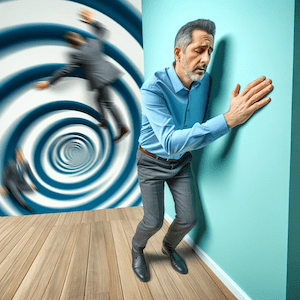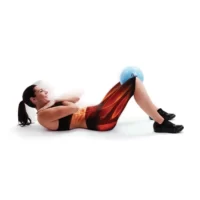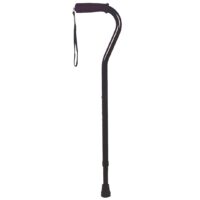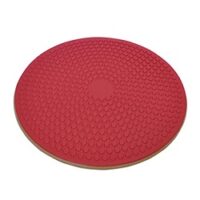Vestibular FAQs
Article by J. Miller, S.Armfield

Discover Answers to Your 26 Most Common Questions About Dizziness, Vertigo, Tinnitus, Balance, BPPV, and Cervicogenic Dizziness
Article Overview:
This comprehensive guide answers the top 26 questions frequently asked about dizziness, vertigo, tinnitus, balance, Benign Paroxysmal Positional Vertigo (BPPV), and Cervicogenic Dizziness. We’ll explore the causes, distinctions, diagnostic processes, treatment options, and preventative measures for these prevalent vestibular and auditory concerns. Empower yourself with the knowledge to make informed decisions about your health and well-being.
Questions and Answers about Dizziness, Vertigo & Tinnitus
1. What Causes Dizziness, Vertigo, and Tinnitus?
Dizziness may arise from inner ear problems, dehydration, low blood pressure, and anxiety. Vertigo often results from inner ear or vestibular system disturbances. Tinnitus is a ringing, buzzing, or hissing sound in the ears, possibly caused by loud noises, age-related hearing loss, or certain medical conditions.
2. How Does Dizziness Differ from Vertigo?
Dizziness pertains to sensations of unsteadiness, while vertigo specifically involves a spinning sensation. Tinnitus, on the other hand, is the perception of sound when no external sound is present.
3. How Do Healthcare Practitioners Diagnose Dizziness, Vertigo, and Tinnitus?
Medical professionals typically conduct a thorough evaluation, including physical examinations, reviewing medical history, and performing various tests such as BPPV maneuvers, balance assessments, and hearing tests.
4. Can Dizziness, Vertigo, and Tinnitus Be Treated?
Depending on the cause, treatments may involve medications, vestibular rehabilitation exercises, neck treatments, dietary adjustments (e.g., for Meniere’s disease), sound therapy (for tinnitus), and lifestyle changes. Assessment of your cause is the key.
5. When Should I Seek Medical Help for Dizziness, Vertigo, or Tinnitus?
It’s advisable to consult a healthcare professional when experiencing persistent, severe, or recurring symptoms of dizziness, vertigo, or tinnitus, especially if accompanied by other concerning signs.
6. How Can Lifestyle Changes Assist in Managing These Symptoms?
Staying hydrated, managing stress, practising balance exercises, protecting your ears from loud noises, and using white noise or background sounds can help address these symptoms.
7. Could Dizziness, Vertigo, or Tinnitus Indicate a More Serious Condition?
While often benign, these symptoms could also be associated with more serious conditions such as vestibular disorders, neurological issues, or underlying health problems. Seeking a proper diagnosis is crucial.
8. Is it Possible to Prevent Dizziness, Vertigo, or Tinnitus?
Although complete prevention may not be possible, you can reduce risks by wearing ear protection in noisy environments, avoiding excessive alcohol and caffeine, and managing stress.
Additional Questions About Balance
1. How Does Balance Impact Dizziness and Vertigo?
Balance is a pivotal element of our body’s equilibrium system. Disturbances in balance can lead to sensations of dizziness and vertigo. The inner ear, brain, and sensory nerves contribute to maintaining balance.
2. Can Balance Issues Contribute to Tinnitus?
While balance problems are not a direct cause of tinnitus, they can sometimes be interconnected. Some inner ear conditions affecting balance may also influence the development of tinnitus.
3. How Does the Body Maintain Balance?
The body’s balance system involves a complex interplay between the inner ear’s vestibular system, visual input, and sensory feedback from muscles and joints. These components work together to help us stay steady and oriented.
4. Why are Balance Assessments Important?
Balance assessments are diagnostic tests that evaluate how well your body maintains equilibrium. These tests aid in identifying potential causes of dizziness, vertigo, and balance problems, guiding appropriate treatment strategies. Please consult your physiotherapist for your balance assessment.
5. Can Lifestyle Choices Impact Balance?
Lifestyle choices such as physical activity, nutrition, and hydration can significantly impact balance. Regular exercise, a balanced diet, and staying adequately hydrated can contribute to maintaining good balance.
6. Are There Exercises to Improve Balance?
Yes, various exercises can enhance balance and stability. Balance exercises often focus on strengthening core muscles, improving proprioception (awareness of body position), and enhancing coordination. Please seek the assistance of your physiotherapist.
7. Can Poor Posture Contribute to Balance Issues?
Yes, poor posture can affect balance by altering the body’s centre of gravity and putting additional strain on muscles that maintain equilibrium. Correcting posture can positively influence balance.
8. Are Age-Related Changes in Balance Normal?
Yes, as we age, changes in the inner ear and sensory systems can lead to a gradual decline in balance. However, adopting a healthy lifestyle, staying physically active, and engaging in balance exercises can help mitigate age-related balance changes.
FAQs About BPPV (Benign Paroxysmal Positional Vertigo)
1. What is BPPV, and How Does It Cause Vertigo?
Benign Paroxysmal Positional Vertigo (BPPV) is a prevalent inner ear disorder that prompts short bouts of vertigo, usually upon altering the position of your head. This condition arises from the displacement of tiny calcium crystals (otoconia) within the intricate balance structures of the inner ear.
2. What are the Symptoms of BPPV?
BPPV symptoms include intense, spinning vertigo triggered by movements like turning in bed, tilting the head, or looking up. These episodes are often short-lived but can be unsettling.
3. How is BPPV Diagnosed and Treated?
Vestibular physiotherapists and ENT specialists diagnose BPPV using specific head movement tests. Treatment options vary depending on the location of the ear crystals. Techniques such as the Epley maneuver is a canalith repositioning procedure that involves repositioning the crystals to alleviate vertigo symptoms.
4. Can BPPV Recur After Treatment?
BPPV can recur, especially in the first few weeks after treatment. However, repeating the repositioning procedure can effectively manage recurrent episodes.
5. Can BPPV Affect Balance and Increase Fall Risk?
BPPV-related vertigo episodes can indeed affect balance and increase the risk of falls. If you experience BPPV symptoms, taking precautions to prevent accidents is essential.
FAQs About Cervicogenic Dizziness
1. What is Cervicogenic Dizziness?
Cervicogenic dizziness is a type of dizziness stemming from neck issues (cervical spine). It often occurs due to problems with neck joints, muscles, or ligaments, which can affect the sensory input to the brain related to balance and spatial orientation.
2. What Are the Symptoms of Cervicogenic Dizziness?
Symptoms of cervicogenic dizziness can include dizziness, unsteadiness, and a feeling of imbalance. Neck pain or discomfort is often associated with these symptoms.
3. How is Cervicogenic Dizziness Diagnosed and Treated?
Diagnosis involves a comprehensive neck assessment and a review of medical history. Treatment may include physiotherapy, manual therapy, exercises to improve neck function, and addressing contributing factors. Cervicogenic vertigo and dizziness treatments are available from suitably trained vestibular physiotherapists.
4. Can Poor Neck Posture Contribute to Cervicogenic Dizziness?
Yes, poor neck posture can contribute to cervicogenic dizziness by affecting the alignment and function of the cervical spine, leading to altered sensory input that impacts balance.
5. Is Cervicogenic Dizziness a Common Condition?
Cervicogenic dizziness is recognised as a condition that may not be as common as other causes. Proper diagnosis and targeted treatment are essential for managing symptoms.
For personalised advice or if you’re experiencing any of these symptoms, consulting a healthcare professional is essential to address your situation.
Rochedale - Call 38410277
Book Online: RochedaleSalisbury - Call 32751044
Book Online: SalisburySandgate - Call 32691122
Book Online: SandgateArticle by Shane Armfield
Discussing Dizziness & Vertigo Causes
Understanding Vertigo Causes: How to Find Balance Again


Battling Vertigo and Dizziness
Experiencing vertigo or dizziness can make everyday tasks feel overwhelming. These sensations can disrupt your life, making it difficult to walk, drive, or even stand without feeling off-balance. Identifying the causes behind vertigo and dizziness is crucial to regaining stability and returning to your normal routine.
Common Causes of Vertigo and Dizziness
Inner Ear Disorders
Vertigo often originates from problems within the inner ear. Some common conditions include:
- Benign Paroxysmal Positional Vertigo (BPPV): This occurs when tiny crystals in your ear canal become dislodged, leading to sudden and brief episodes of dizziness.
- Meniere’s Disease: Characterised by a fluid imbalance in the inner ear, Meniere’s disease can cause vertigo, tinnitus, and hearing loss.
- Vestibular Neuritis or Labyrinthitis: These conditions result from inner ear infections that cause inflammation and lead to vertigo.
Cervicogenic Dizziness
Another significant cause is cervicogenic dizziness, which stems from neck issues. Problems in the neck can interfere with sensory signals to the brain, resulting in dizziness. This type of dizziness is often overlooked but is crucial to recognise for effective treatment.
Other Causes of Dizziness
Dizziness can also arise from various other sources, including:
- Low Blood Pressure: Sudden drops in blood pressure can cause light-headedness.
- Medications: Some medications list dizziness as a potential side effect.
- Anxiety or Stress: High stress levels can lead to episodes of dizziness.
Diagnosing Vertigo and Dizziness
Understanding the root causes of vertigo and dizziness helps healthcare professionals tailor treatments to reduce or eliminate these symptoms. This process may involve a series of diagnostic tests to pinpoint the exact cause, ensuring a more effective treatment plan.
Treatment Options
Vestibular Physiotherapy
Vestibular physiotherapy can significantly improve symptoms of vertigo and dizziness. This specialised therapy focuses on exercises and techniques that help retrain the brain and improve balance. It's especially beneficial for conditions like BPPV and Meniere’s disease.
Medical Treatments
In some cases, medication may be prescribed to manage symptoms or treat underlying conditions. For instance, medications can reduce inner ear inflammation or manage anxiety-related dizziness.
Lifestyle Changes
Making certain lifestyle adjustments can also help. Reducing salt intake can manage Meniere’s disease, while regular exercise and stress management techniques can alleviate anxiety-induced dizziness.
Conclusion
Determining the causes of vertigo and dizziness can be complex. While many causes are benign and manageable, some may indicate more serious conditions. It's essential to consult a healthcare professional for an accurate diagnosis and appropriate treatment plan. Vestibular specialists, including ENT doctors and vestibular physiotherapists, can guide you towards a more stable and balanced life.
What to Do?
If vertigo or dizziness is impacting your life, consider booking an appointment with a physiotherapist. They can assess your symptoms and provide tailored advice. For more information on managing vertigo and dizziness, explore our Vestibular Physiotherapy section and FAQs.
Rochedale - Call 38410277
Book Online: RochedaleSalisbury - Call 32751044
Book Online: SalisburySandgate - Call 32691122
Book Online: SandgateVertigo FAQs
- What is vertigo? Vertigo is a sensation of spinning or dizziness, often caused by inner ear problems.
- What causes vertigo? Common causes include BPPV, Meniere’s disease, vestibular neuritis, vestibular migraine and cervicogenic dizziness.
- How is vertigo diagnosed? Diagnosis involves a physical examination, medical history review, and specific tests like the Dix-Hallpike maneuver. Consult your physiotherapist or doctor.
- Can stress cause vertigo? Yes, high stress and anxiety can lead to dizziness and vertigo episodes.
- What is the treatment for vertigo? Treatments include vestibular physiotherapy, medications, and lifestyle changes such as reducing salt intake.
- When should I see a doctor or physiotherapist for vertigo? If vertigo significantly impacts your daily life or is accompanied by other symptoms like hearing loss or severe headaches, seek medical advice.
Related Articles
- Cervicogenic Dizziness & Cervical Vertigo - Tips & Treatment: Readers will find detailed explanations about how neck disorders can lead to dizziness and vertigo.
- Vertigo & Dizziness: This article offers a broad overview of dizziness and vertigo, providing insights into their differences and potential causes.
- Vestibular Physiotherapy: Balance & Dizziness Solutions: Explore how vestibular physiotherapy can help manage and treat balance issues and dizziness.
- What Are The Four Types Of Dizziness?: Readers will learn about the four distinct types of dizziness and their respective causes and symptoms.
- Meniere's Disease: An in-depth look at Meniere's Disease, offering insights into its symptoms, diagnosis, and management.
- Vestibular Migraine: This page discusses vestibular migraines, highlighting their unique challenges in diagnosis and treatment.
- Neck Pain: Find comprehensive information on the various causes of neck pain and its relationship to dizziness and vertigo.
- What Are The Symptoms Of BPPV?: An article detailing the symptoms of Benign Paroxysmal Positional Vertigo (BPPV), helping readers to better understand this condition.
- Vestibular FAQs: Offers answers to frequently asked questions about vertigo and dizziness, enhancing understanding of these conditions.
- Vertigo Causes & Dizziness Causes - Advice & Managing Tips: Provides information on the various causes of vertigo and dizziness, along with tips for managing these conditions.
Article by John Miller
Balance Exercises
How to Improve Your Balance
Improving your balance is not only possible, but it can also be remarkably straightforward. Recent scientific research underscores the effectiveness of balance retraining. Remarkably, you can see significant improvements in just a few weeks by incorporating progressive balance exercises. These exercises work to normalise your balance and corrective reactions, essential for everyday activities and sports performance.
The Importance of Balance Assessments
A crucial first step in improving balance is undergoing a professional balance assessment. Physiotherapists are skilled in safely evaluating your balance and prescribing tailored exercises and equipment for balance improvement. These assessments form the foundation for a personalised balance enhancement program.
Read more: Where Can You Get Your Balance Assessed?


The Best Exercises for Fall Prevention
One of the primary benefits of improved balance is fall prevention. This is particularly important as we age. Exercises that enhance strength, balance, and righting reactions are central to fall prevention. Safety during these exercises is paramount. A physiotherapist can tailor a safe, effective fall-prevention exercise program to your needs. This personalised approach ensures a steady progression as your balance improves. For professional guidance on starting a fall-prevention exercise routine, consult your physiotherapist.
Utilising Balance Enhancement Products
Over the years, clinicians have developed a range of products that effectively enhance balance. These products have shown success in reducing falls plus also ankle and knee ligament sprains and improving daily and sporting performance. Many of these can be used conveniently at home to boost your balance, reduce injury risk, and alleviate joint pain.
Some recommended balance enhancement products include:
Incorporating these products into your balance training can maximise benefits, leading to improved balance and stability.
For more details: Balance-Related Products
New Research and Developments in Balance Training
Recent studies have brought to light new insights in balance training. These include the importance of multi-directional exercises, the role of core strength in balance, and the benefits of proprioceptive training. Integrating these elements into balance training can lead to more comprehensive improvements.
Conclusion and Next Steps
Improving your balance is an achievable goal with the right approach. Starting with a professional assessment and following through with tailored exercises and the use of enhancement products can lead to significant improvements. The evolving field of balance training continues to offer new strategies and insights.
What to Do Next?
Seek professional advice from your physiotherapist. They can guide you through a safe, effective balance improvement program tailored to your needs. Remember, the journey to better balance starts with a single step – reaching out to a professional!















